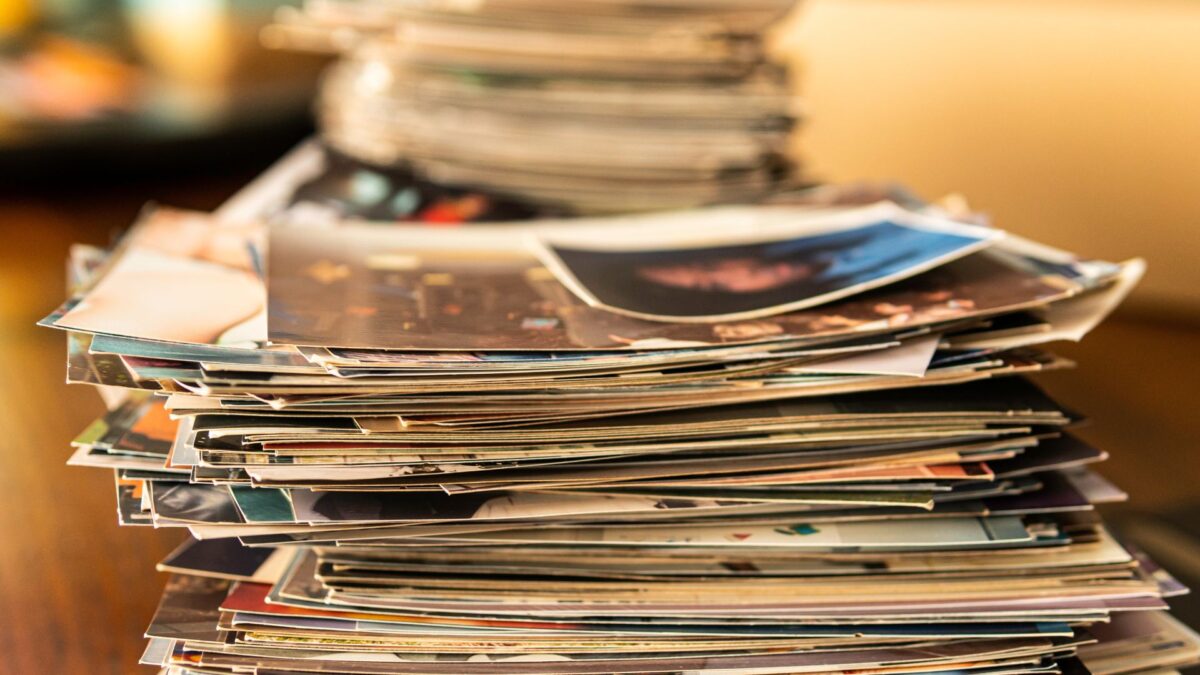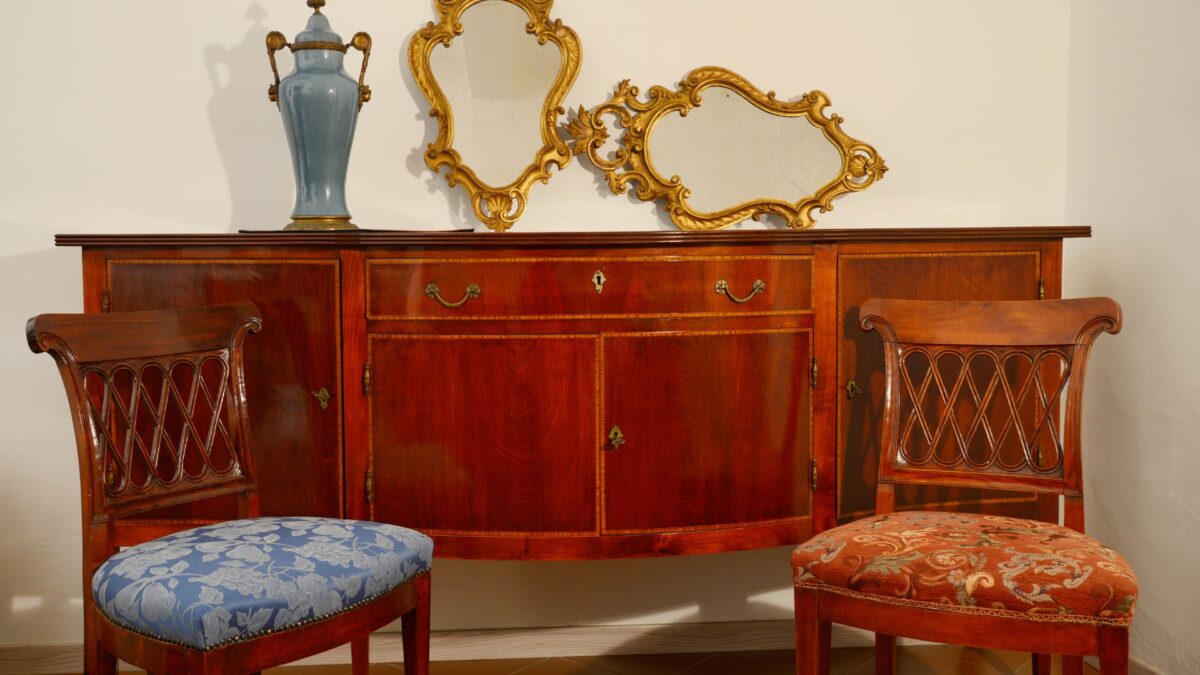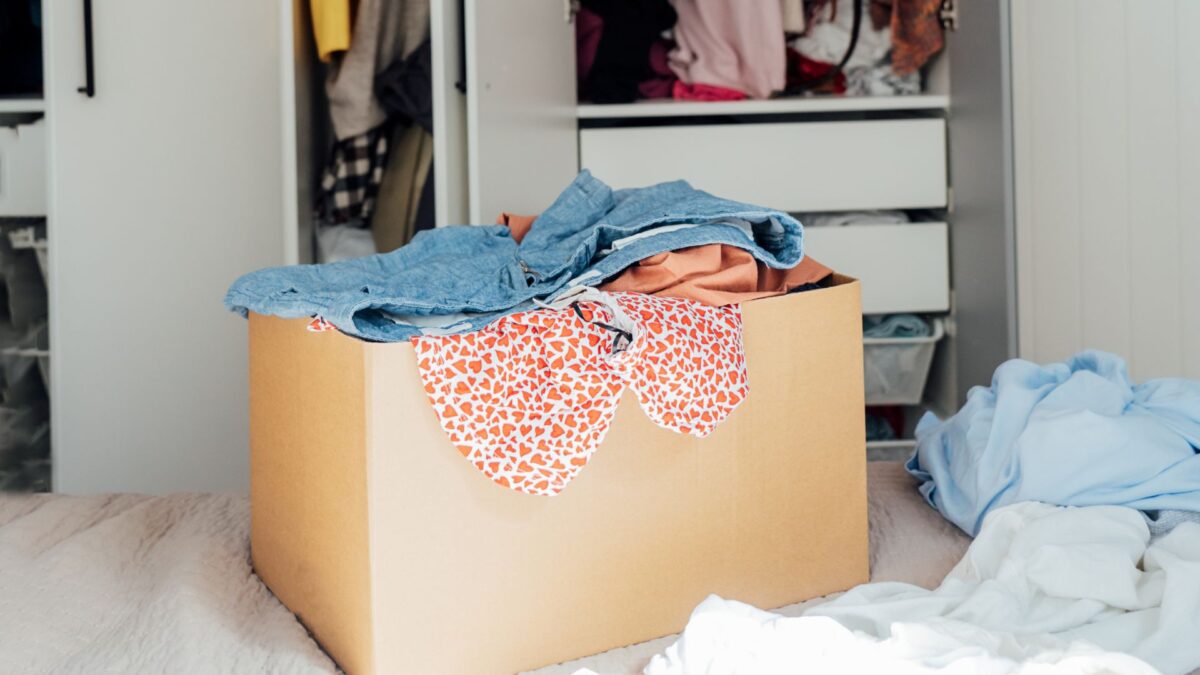What is Swedish Death Cleaning?
Swedish Death Cleaning, also known as “döstädning,” is not just about tidying up physical spaces; it’s a philosophy that encourages reflection and mindfulness about our belongings and the legacy we leave behind. This concept, popularized by Margareta Magnusson’s book “The Gentle Art of Swedish Death Cleaning,” has gained traction globally for its pragmatic and compassionate approach to decluttering. Unlike traditional decluttering methods, Swedish Death Cleaning emphasizes the importance of simplifying one’s life and leaving behind a manageable legacy for loved ones.
When to Start Swedish Death Cleaning
The question of when to start Swedish Death Cleaning often sparks contemplation. Some might associate it solely with aging, but the truth is, there’s no one-size-fits-all answer. While individuals in their later years may find it especially relevant as they consider downsizing, younger generations are increasingly embracing the philosophy as well. Starting early allows for a gradual process, reducing the likelihood of feeling overwhelmed by a lifetime’s worth of accumulation. It’s not merely about preparing for the end but also about living more intentionally in the present.
Where to Start Decluttering
Embarking on a Swedish Death Cleaning journey begins with a deliberate assessment of one’s possessions. It’s about confronting the mess, whether it’s in closets, drawers, or even the digital realm. Marie Kondo, renowned for her KonMari method, advocates for starting with items that hold sentimental value. By beginning with emotionally charged possessions like photographs or heirlooms, individuals can cultivate a mindset of mindfulness and intentionality. From there, gradually expand the decluttering process to include less sentimental items, eventually tackling larger items and spaces.
What to Preserve
In a culture that often celebrates accumulation, Swedish Death Cleaning champions minimalism. It’s not about ruthlessly discarding material things but rather about curating a collection of items that truly enrich one’s life. When determining what to keep, consider the value each item adds – both practical and emotional. Sentimental items like photographs or mementos deserve a place in your life if they bring joy or evoke cherished memories. However, excessive sentimentality can also lead to clutter. Marie Kondo‘s advice to only keep items that “spark joy” is particularly relevant here, encouraging individuals to cultivate a deeper connection with their belongings.
Things to Document
Beyond physical belongings, Swedish Death Cleaning also entails organizing important information for your loved ones. This includes not only financial documents and passwords but also personal reflections and wishes. Consider creating a digital or physical “legacy box” containing these vital details, ensuring that your loved ones have access to them when needed. Reflecting on one’s life and documenting personal stories can also be a therapeutic process, allowing for introspection and closure.
Making it Last
Swedish Death Cleaning isn’t just a one-time decluttering spree; it’s a mindset shift towards intentional living. To make the changes last, incorporate practices of mindfulness and reflection into your daily life. Regularly assess your belongings, questioning whether they align with your values and goals. Cultivate habits of minimalism, prioritizing experiences over material possessions. By embracing the principles of Swedish Death Cleaning, you can create a lasting legacy of simplicity and intentionality.
Will Anyone be Happier if I Save This?
One of the central questions in Swedish Death Cleaning is whether holding onto an item will truly bring happiness to yourself or others. It’s easy to become attached to possessions out of guilt or obligation, but clutter can ultimately become a burden rather than a source of joy. By reframing the question in terms of happiness and well-being, individuals can make more informed decisions about what to keep and what to let go of. Remember, letting go of excess doesn’t diminish the memories or experiences associated with them – it simply makes room for new opportunities and experiences.
How to Share
As you declutter, consider the impact your belongings could have on others. Items that no longer serve you may bring joy or utility to someone else. Donate gently used belongings to charities or organizations in need. Alternatively, consider passing down heirlooms and sentimental items to family members who will appreciate them. Hosting a “gift-giving” gathering can also be a meaningful way to share your possessions with loved ones while fostering connections and memories.
Swedish Death Cleaning Checklist
To assist you in your Swedish Death Cleaning journey, here’s a comprehensive checklist:
- Start with sentimental items, gradually expanding to include less emotionally charged belongings.
- Curate a collection of items that truly enrich your life and align with your values.
- Organize important documents and information for your loved ones.
- Cultivate habits of minimalism and intentional living.
- Regularly assess your belongings and declutter as needed.
- Consider the happiness and well-being of yourself and others when deciding what to keep.
- Share your belongings with others through donations, gifts, or meaningful gestures.
My Personal Journey: The Lesson from My Family’s Experience
My mom recently experienced the consequences of not engaging in Swedish Death Cleaning. After the passing of my grandpa, she found herself faced with the daunting task of sorting through his lifetime of clutter. It wasn’t just about sentimental items; there were piles of papers, unused belongings, and miscellaneous items accumulated over decades. The process was emotionally taxing and financially burdensome. She had to rent a dumpster to dispose of the excess clutter, a cost that could have been avoided if my grandpa had taken proactive steps to declutter and organize his possessions.
The Importance of Reflection
Swedish Death Cleaning isn’t just about clearing physical clutter; it’s also an opportunity for introspection and reflection. As you sift through your belongings, take time to reflect on the memories they hold and the values they represent. Consider how your belongings align with your current lifestyle and goals. Reflecting on your belongings can provide valuable insights into your priorities and help guide future decisions about what to keep and what to let go of.
In conclusion, Swedish Death Cleaning offers a holistic approach to decluttering and organizing one’s life. By embracing principles of minimalism and mindfulness, individuals can cultivate a more intentional and fulfilling existence. Whether you’re young or old, it’s never too early to start reflecting on your belongings and simplifying your life. So why wait? Begin your Swedish Death Cleaning journey today and discover the transformative power of intentional living.
Grab your copy of:The Gentle Art of Swedish Death Cleaning
Check out the interview with Margareta Magnusson below!
READ MORE:
- How To Tell Your Parents You Don’t Want Their Stuff
- Letting Go Of Other People’s Stuff: How To Declutter Family Heirlooms
- 10 Decluttering Questions That Aren’t “Does it spark joy?”
- How To Declutter After Someone Passes Away
- What To Do With Old Photos You Don’t Want?
- 5 Genius Attic Storage Ideas
- How To Declutter And Organize The Garage
Grab a copy of Declutter Your Home eBook, presented by Uncluttered Simplicity.
« How To Say No When You Always Say Yes
» How To Tell Your Parents You Don't Want Their Stuff



I’m nearly 73. Our son wants nothing. Our daughter may want several things when the time comes, just not now as she lives with us. I have a couple of pieces of jewelry, that I am sometimes inclined to sell. Daughter has emotional difficulties and don’t want family valuables to be stolen from her. My mother’s youngest sister doesn’t want me to do that. But I never wear it. It just stays locked up and out of view. Have one niece that knew my mother, but she is 52. If anyone is going to sell it, I think I should be me. But, then I just don’t know. I’m open to other’s thoughts on this.
I am 61 and have started my death cleaning. My mom is nearly 90 and has hauled so much stuff (including long expired canned and dry goods) through TWO major moves. She is now going through her things so she can fit into a 1 bedroom apartment at a senior independent and assisted living community. I am stunned at some of the things she has kept…3 hair dryers, baking pans she hasn’t used in a decade, a dozen tablecloths (many of them stained)., and the list goes on. I am soooo incredibly grateful that she heeded my firm urging to move to a senior community where they have assistance 24/7 and that SHE is going through her things and deciding what means a lot to her and what she has just kept because she had it already and MIGHT need it someday. It has made me do some soul searching about my own retentions. I have started to find homes for kitchen things that it is unlikely I will use (hello tiered cake pans and extra large crock pot…and 8 vases…). I don’t have kids so that makes things a bit easier because I have sentimental attachments to few things. I am finding it freeing to work out how to get rid of things in a positive way and open up space in closets that had once been overwhelming. I opened one closet today, took a deep breath, and smiled at the space.
When I worked with my mother to declutter her home. (40 years in the same home) I called her piles of things to give away”blessings “. So we created “blessing bags and boxes” to give away to family members, friends or charity. It changed her whole demeanor!!! Bless God!
Thank you for sharing this ! I’m inspired to start cleaning and decluttering so I don’t leave my love ones with this burden. GOD bless!
When I first saw this I giggled? Why “SOUNDS LIKE YOU WERE TAKING MOM OUT WITH THE TRASH”
What a beautiful and fantastic thing to do!
A true Family Affaire!
So I’m inviting Grown children, Grandchildren and Great Grandchildren.!
On my 🥳BIRTHDAY 2024🥳
Thanks so very much it’s awesome and appreciated
They should be grateful to have my collections ! LOL. I have a side hustle and it takes up a lot of room. I also collect china and glass.It hurts me to think my only child has no interest in my things. I was thinking about contacting a company that sells businesses. Someone could start their own business or antique shop. Recently, I had a leak and had to move everything. I sort by categories and seasons and label the boxes. At least I am packin it up.
Some years back, I was standing near a mother with two older teenagers in GoodWll. She said “When I die, I do not care if you burn my stuff, do not donate to GoodWill. I do not want people sorting thru my stuff”. I hear you. Me neither.
I love this idea! My father passed away in 2021 and my mother followed him him almost to the day in 2022. In between their deaths I faced my own mortality with a diagnosis of breast cancer. I say all that to show I know how overwhelming it can be to clean out a loved ones belongings, especially if one of them believed you should save EVERYTHING! (Cue hoarder house visions) So here I am a year and a half later still trying to declutter. As an only child it is all on me, which means it’s a little overwhelming. I want to prevent my son from going through this. And while I don’t have siblings, I do have a large, very close extended family and the thought of them enjoying things that remind them of my parents brings me joy. So one room or corner at at time. I’m doing this.
I love this idea and agree with it. However, my mother, who is in desperate need of decluttering would be alarmed and saddened by the term “death cleaning.” It’s my wish that she would go about giving away some valuables while still living. (She is 78 and demonstrating some signs of dementia), she holds to an idea of us (the remaining living family) going through all her possessions after she passes. Any ideas or suggestions for presenting this with a different term?
I didn’t realise I’d been doing this for the past few years but it now makes sense.
I didnt want to burden our kids with having to dispose of “stuff” . So once they both left home I gave anything that was theirs including toys in the loft back to them to make a decision on what to keep. Clothes are down to a small 2 wardrobes and 2 chest of drawers for myself and husband. Only buy new when needed. Ornaments/bric-à-brac unless really sentimental and handed down through family given away to charity. Kitchen crockery,pots,pans, cutlery, bed linen kept to a minimum rest given to kids or charity. Tackling the huge amount of photos was daunting but then sorted into family history , kids, holidays etc binned the irrelevant ones. Once you start “death cleaning” it really keeps you on top of things and simplifies life on the whole.
Cleaning out is good, but there will still be stuff. I have told my children the things I would like them to take care of ( approximately 10), the rest I told them sell, donate , whatever they decide. I do not live in those things and giving them permission while you’re alive hopefully will stop any guilt they may feel about not wanting it.
Time to start? About 50 years before I was born judging by my current collection and still a few decades to go yet
Great to hear Alex, thanks for letting me know!
I am so glad I found this article! My grandpa passed away a few years ago and my family has been trying to get my grandma to do something similar for years. I never realized how much stuff people can accumulate when living in the same house for decades. I showed her your blog post and we were finally able to convince her to start cleaning out her house and get rid of things that she didn’t need. Believe it or not, we ended up renting a dumpster and filling it to the brim after we set aside multiple bagfuls of things to donate. We still have a long way to go, but her house has looked better than it has in years! Thank you so much for sharing this!
Hi Sheila, have you read this article for packrats?
How do you death clean when you’re not ready to give things up not a hoarder but maybe a packrat You know you should